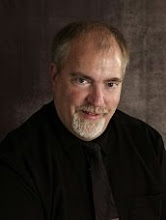Dead Man Walking

This weekend I got to see my son Zeke in his college’s production of “Dead Man Walking.” Zeke plays the role of Matt Ponchelet, a convicted murder who is awaiting his execution on death row in Louisiana. He begins to receive visits from Sister Helen Prejean, who sees Matthew’s humanity and dignity despite his crimes and hostile attitude. Although he clings to his claims of innocence and his insistence that others were really to blame nearly till the end, Ponchelet confesses his guilt and is assured of God’s forgiveness. Although his crimes brought consequences, he was able to receive grace and was redeemed.
The play was preachy in some spots. Although it purports to show both sides of the capital punishment question, it definitely slanted toward the “anti” position. Because the sentiment is expressed through the words of Sister Helen, it is intended to represent the position of the Catholic church, which is that human life is a seamless garment, and that to be consistently pro-life, a Christian must oppose abortion, capital punishment, and war. To paraphrase “Dead Man Walking,” murder is murder whether committed by Matt Ponchelet or by the government who executes him.
I believe that this position is not consistent with Scripture, however. Passages that teach Christians to “turn the other cheek” rather than seeking personal revenge speak to a personal morality that allows justice to be executed by God’s governing authorities. Romans 13 says that the government is God’s agent to punish the evildoer, and that it does not bear the sword for nothing. However, unlike the Old Testament civil law that prescribed the death penalty (a la the Code of Hammurabi) for a wide variety of offenses, the New Testament is not a type of Christian Koran that is meant to be a constitution for civil society. A government that executes a criminal is bearing the sword as God permits. It is, therefore, impossible to call capital punishment “immoral” on the basis of the Bible. If, however, a society chooses not to apply the death penalty, that does not mean that it has abandoned God. Civil societies have the freedom to devise their own sanctions for criminal behavior in order to protect the innocent.
I once was summoned for jury duty for a capital murder trial. Actually, I was a member of the jury pool who was stricken by the prosecution because I wouldn’t be a reliable vote for the death penalty. Although I had no personal problem with execution and could not call it “immoral” and in conflict with Christianity, I admitted that I didn’t want to be the one to become the executioner, because I believe that as long as a person has breath and life, he has opportunity to repent and turn to Christ for forgiveness. I had a hard time putting myself into the role of ending that time of grace and sending the person to their eternal fate.
The United States is the last nation in the western world to utilize capital punishment. It is likely to be a topic of conversation this week as Pope Benedict visits our country. How have your convictions developed on this topic?


<< Home